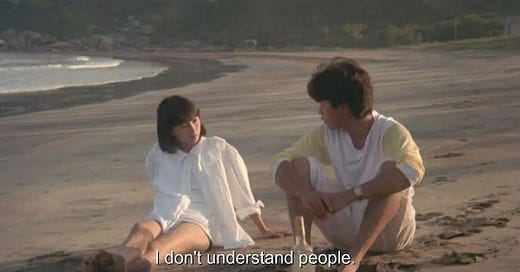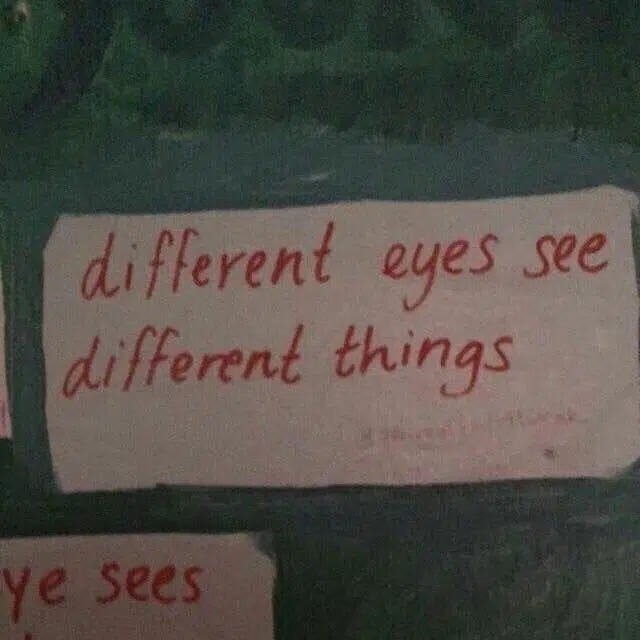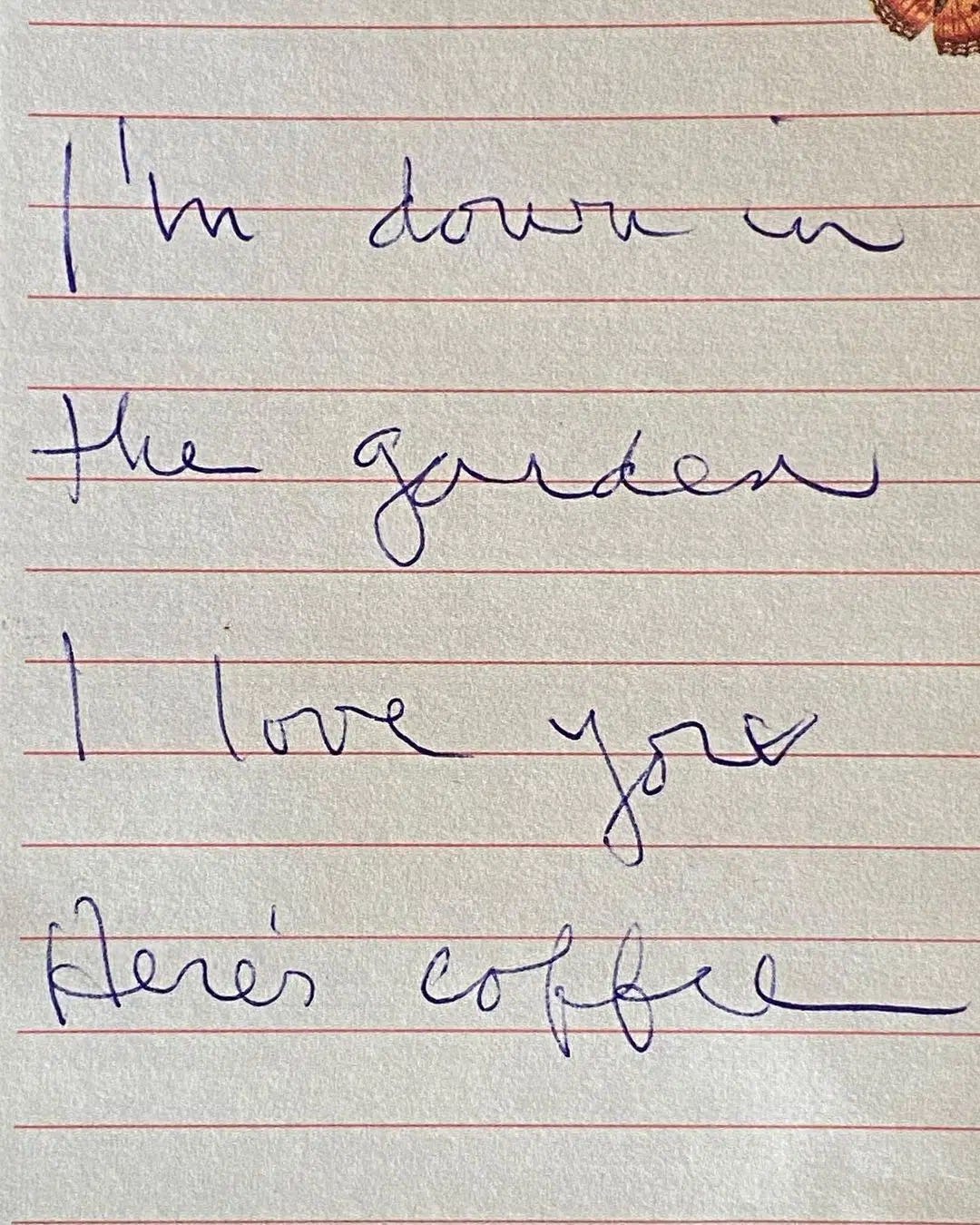The Energetics of Love: How I Went from Dysfunctional to a Secure Relational Dynamic
Part 1
A gentle reminder that the Moon Studio’s facilitation of the classic The Artist’s Way starts next week! If you’ve wanted to explore your creativity in a beautiful group, with weekly additional support, this is your sign. All paid subscribers get to sign up for $99. (Code is in a prior post about it.)
A few weeks ago, a note I shared here circulated a ton.
“I often say I fell in love with my partner’s nervous system. Do not underestimate the importance of being around folks who make you feel safe, seen, and supported on an energetic and physiological level.”
It turns out I had a ton to say! I decided to split this exploration up into a few different pieces. In this piece, part 1, I’ll touch upon the cultural influences we’ve most likely subscribed to that impact our relationships. Part 2 will be about how much our childhood and the subconscious influence our relationships, and how to think about subconscious rewiring. Part 3 will most likely be a more personal share about how I went from mostly unhealthy and abusive relational dynamics to the healthy, secure relationship I currently have for 13+ years. This is all with the intention to support and affirm others who have made the shift, or who want to make the shift.
It’s never been more important to heal ancestral patterns of abuse and dysfunction. Those of us who do so are cycle breakers, the “transitional” characters in our bloodline and also the culture. 1We have the power to change entire lineages in our lifetime: but it’s a hard and often lonely process. I hope these shares will make you feel less alone.
We aren’t only dealing with our own lineage’s troubled epigenetics, we’re existing inside of a dominant society that is afraid of true love and intimacy. Many of us are not taught how to locate love, become it, and foster it in ourselves, let alone with others.
Dominant Culture Teaches Us Scarcity and Dysregulation Is Love
Humans bloom in steady soft love. A love that sees our truest selves, the brambles and berries alike and does not flinch. A love that is insatiably curious about what the other’s motivations, preferences, and non-negotiables are. Humans thrive among those who cherish our dreams as if they were their own, while also checking us when we aren’t being all we can be. Humans thrive through accountability, and true accountability can only exist on a foundation of trust, respect, and vulnerability.
Love is the highest form of collaboration, which is the highest form of relationship.
It is only through relationships that we can see one another: I marvel at the fact that we’ll never truly be able to see all of ourselves in this life, mirrors and cameras cannot take the place of real-time eyeballs. Our beloveds will always get the gift of sight, we’ll always be truly seen through another’s clarity of vision. This is why we must try to see as clearly as possible; lest our view of someone, and our Self remain murky. #Loverscardwisdom
“Our task is not to seek for love, but merely to seek and find all the barriers within yourself that you have built against it, and embrace them.” —Rumi
What we are taught about love in our Western culture, about how to get, keep, and maintain love, is often transactional and about performance. At times, it is more about oppression and control instead of intimacy. Love is the great unveiler, yet we are made to feel like we have to hide in order to be seen as attractive. If we’ve been raised codependent, or have low self-esteem, we are taught that our worth is based on what we can do for other people, and how well we can perform or appear as what they want or need us to be. Many of us are taught in subtle and overt ways to possess no needs or preferences.2
People will project a certain image out of insecurity or unconsciousness, and so the other person believes that image, and when that image inevitably gets complicated, or the facade drops, the other person feels confused or betrayed. Or, people make up stories about one another in their mind (saviors! fantasy! parent or dream parent!) and interact primarily through the filter of that story or unmet childhood need—then becoming confused or disappointed when that person doesn’t live up to the fantasy. People do this in all relationships, by the way, and one of our biggest challenges is to check our projections and to exist in reality. (#raiseshand#youteachwhatyouneedtolearn)
There’s also the contractual, transactional, residue of patriarchy that has plagued relationships. Possessiveness, ownership, and control are normalized.
This creates chronic imbalance and power struggles.
Real love creates freedom.
Paradoxically, freedom often stems from security.
Does your love create more freedom for those around you?
A relationship is about making space for others to be uniquely themselves.
It’s understanding their unique needs and preferences and adapting to them.
In the process of attempting to make another feel seen, safe, and supported, we get to experiment with flexibility. We find our growth edges and stretch out beyond them.
You are supposed to want, supposed to have opinions and desires and needs and preferences and likes and dislikes. Your beloved is supposed to want to help you create those desires as best they can, as you are meant to help them.
Differences are meant to be celebrated, not demonized.
Part of why we are so divided currently is that those who have the capacity to hold space for difference and the truth are rare. This is not about placating MAGA enthusiasts; I’m talking about not being able to receive well-intentioned feedback from a friend who loves you and wants to strengthen the relationship by being vulnerable about their hurt feelings when you flake on them with no warning. 3 A truthful share is not an attack, though they are often misconstrued that way. If you can’t take feedback about how you impact a relationship, that sets the relationship up for a one-sided dynamic or a power imbalance. (Avoidance and stonewalling is a power move, even if it feels more like a coping mechanism. People pleasing is lying and emotional manipulation, even if it feels like creating harmony.) If your response to a mild or moderate disagreement/misunderstanding is to ghost or immediately shift blame, you will never grow your capacity and you will not grow in connection.
An example from my own life is how much my mental health impacts my partner. I’ve had to truly reckon with how much my depression influences him. None of us exist in a vacuum. When I improve my mental health, our relationship, and his life, also improve. Interdependence is about putting the oxygen mask on first while respecting how much we are all connected.
If you aren’t open to repair, if you aren’t willing to set your ego aside, apologize, and figure out how to move forward after rupture, you aren’t going to be able to cultivate vulnerable relationships. It’s plain to see how the carceral system of white supremacy has impacted our interpersonal relationships; late-stage capitalism has also made the stakes higher. Some of us may feel as if our survival depends on performance; being who someone else needs us to be or appearing to have no needs. This isn’t a culture where the liminal or the often “in-process” experience of developing intimacy is valued: because this involves slowing down and moving at the speed of trust and clear sight. This isn’t efficient, it’s not wrapped up in a 25-minute sitcom. The payoff isn’t always immediate, or even immediately evident. The work of love, like magic, is often a slow, subtle spiral.
Relationships are messy! Love is often inconvenient!
The culture sets us up for relational failure with the emphasis on romantic, monogamous love over all other relationships. Love isn’t hierarchal and relationships shouldn’t be either. No one person can be everything to another; this is bound to create pressure and a lack of fulfillment. Not everyone wants (or has access to) romantic or monogamous love, but everyone needs intimate, deep, soulful relationships. To emphasize romantic love over any other kind of love automatically creates scarcity around it.
Even the words we commonly use to describe new love are violent and disruptive.
Crushes.
Falling in love.
Butterflies in the belly.
Crazy, lovesick, and out of control.
Love is a battlefield.
Love is a fantasy, an escape.
These are all descriptions of a collapsed nervous system, of a body that struggles to regulate, of people who struggle to locate themselves.
Isn’t it disconcerting that these narratives are so widespread?
What if the butterflies in the belly is activation because of anxiety?
(Or an inability to deal with uncertainty, loss of control, intimacy, or vulnerability?)
What if instead of love making us fall, it helped us grow?
What if it was widely taught that love wasn’t a space of uncertainty and overwhelm?
The energetics of what many of us have been taught are unsustainable.
There is enmeshment, where merging and unconscious mirroring takes place.
This is where people-pleasing, codependence, and a lack of autonomy come from.
There is overextension, where one person gives and gives, totally oriented to the other before the Self. This is a recipe for resentment and exhaustion. It is also non-consensual; partner B has not asked partner A to overgive. A lot of assumptions have been made that need to be addressed.
Another common dynamic is emotional unavailability.
This can be when two avoidants get together, or sometimes is a scenario of immaturity and lack of practice.
For years, I thought that because I was the more emotionally mature person in my relationships, the other person was the only emotionally avoidant in the equation.
Turns out, I subconsciously picked people who were emotionally unavailable so I could feel superior and this behavior conveniently helped me avoid doing the work of emotional intimacy. (It also kept me in loops of drama and loops of distraction, all patterns I picked up from a volatile and abusive childhood.)
I was emotionally unavailable and immature myself, but refused to see it. I kept myself in the comfort of illusion by fixating on the shortcomings my partner had in that area. It was only until I started dating someone more secure and available that the ruse was over. It was deeply humbling to realize my subconscious kept choosing folks who would help keep certain untrue beliefs about myself alive and stop me from going into the discomfort of presence and intimacy. (Our subconscious is one heck of a protector! #staytunedforpart2)
The most sustainable dynamic in any relationship is honesty, transparency, and openness. It is when both folks know what they need and how they tend to show up in tender/stressful/unknown situations. Self-awareness is key, as is the ability to be with discomfort—staying prescenced enough to remain curious and compassionate during misunderstandings, instead of defensive and shut down. So many folks wait until they are at some perfect state to enter into a relationship when the truth is, we will most likely be healing until our earthly departure. Never underestimate the power of pure intentions and dedication to the process.
The healthiest relational dynamics can happen when both folks show up with nothing to prove, defend, or hide. To show up with as few expectations and assumptions as possible. It is to show up gathered in generosity, curiosity, amusement, and compassion.
This is how true vulnerability and intimacy bloom.
Sometimes, a healthy dynamic can be similar to a magnet; a deep attraction, but with a touch of tension that creates a bit of space. Conflict is inevitable; fighting (fair) is healthy and normal. If both people come to a relationship individuated it makes sense that there will be differences.
Sameness is not intimacy! Always agreeing with someone isn’t the goal; being able to hold space for diversity and stay respectful is.
Healthy Dynamics Begins With Your Relationship To Yourself
I wanted to end with this reminder: relationships include the relationship you have with yourself.
You don’t have to wait to be in a partnership to begin creating healthier dynamics in the world. It can feel lonely not to have people around you committed to intimacy and growth, but you can always begin with yourself. You are your constant companion for the entirety of your lifetimes.
Mindfulness practices, energetic practices, and somatic practices can all help shift the way you relate to yourself. If you have experienced decades of a certain kind of shape, or a particular kind of pattern or reaction, it will take time to create new shapes, new patterns, different responses. You become what you practice (8 of Pentacles), and often it is how you are being with yourself as you practice that moves you forward. Qualities of gentleness, patience, and positive regard grow through practice. Attachment styles begin with how you treat yourself and what your nervous system does, and understanding your levels of avoidance or anxiety is key to repatterning certain behaviors. Vulnerability requires honesty, and honesty requires capacity. Focus on strengthening your energetic capacity, not only to be able to hold and stay with discomfort, grief, or shame, but to be able to grow larger in love around all the discomfort.
There is a magnetism to a secure person because their energy field is whole and their aura is filled with love and vitality. There is a magnetism to those who are actively working on themselves: someone who is earnestly dedicated to growth, healing, recovery, and wholeness emits those frequencies. The world needs more of us actively investing in healthier paradigms, so become more of what you’d like to experience as you move through this world.
Some questions to ask yourself, based on this reading:
What were some early experiences around love that still influence me today?
What beliefs about intimate relationships from colonialism/Western culture/patriarchy/heteronormativity have I subscribed to?
What would be an ideal intimate relationship(s)?
Can I create that with anyone currently in my life?
Can I create that with myself? With my relationship with creativity, spirituality, the greater living world, and so on? How can/will I?
What are the predominant qualities of the relationship I have with myself?
Do I make space for the truest, best parts of myself to develop and shine?
Can I make space for my shadows, shame, or other uncomfortable parts?
What are my preferences and non-negotiables within a relationship?
How has my attachment style shown up inside of relationships?
Do I know what my part has been in past unhealthy relational dynamics?
What current pattern am I working on shifting, and how am I doing so?
Can I stay centered and present, even in times of uncertainty, even when things are uncomfortable, or are not going my way?
Extra credit questions for my magical babies:
What energy center gets most activated in intimate relationships? What energy center do I most protect or shrink while relating to those I care about, or who I want to care for me? When I am in more intense relating scenarios, where do I feel it most in my energy field?
Does my energy tend to match, overextend, collapse, or retract in intimate relationships? Am I able to stay energetically centered, without overextending/matching/or retracting my energy when I relate/am seen? What sign /planets make up my 7th house? What sign/planets make up my 4th house?
This is just part 1 of a deeper dive into love/relating/rewiring around safety and connection. 4 Subscribe for the next parts in the series, coming over the next month.
I’m curious to see what dynamics you’ve experienced and what you’ve learned about yourself through relationships. Feel free to share what you are struck by in the comments below!
In therapy-speak, a transitional character is someone who, in a single generation, changes the entire course of a lineage.
Pro-tip: if you regularly find yourself holding in your bodily functions for long periods of time, or sitting for long periods without stretching or moving, you may be in need of a reset/softening/defrost.
If you find yourself not knowing what you like or dislike without needing to seek other’s approval or ideas, you are in need of some individuation/energetic/intuitive development.
“We can disagree and still love each other unless your disagreement is rooted in my oppression and denial of my humanity and right to exist."—James Baldwin In my world, there is no tolerance for hate or violence. K? k.
Can you tell I’m in my Lover’s Year?








This read influenced a poetry. A recognition.
Love travels faster than the speed of light
Love holds you in darkness and keeps you afloat
Love whispers the truth gently in your ears and calls out to the hidden smile, by giving you access to a memory
I am experiencing a return to love that is stronger and gentler. A love that feels settled knowing it can reach this point after another stir.
Whew. This post is a perfectly pulled shot of espresso. Rich to taste "the truth is, we will most likely be healing until our earthly departure" thank you thank you!